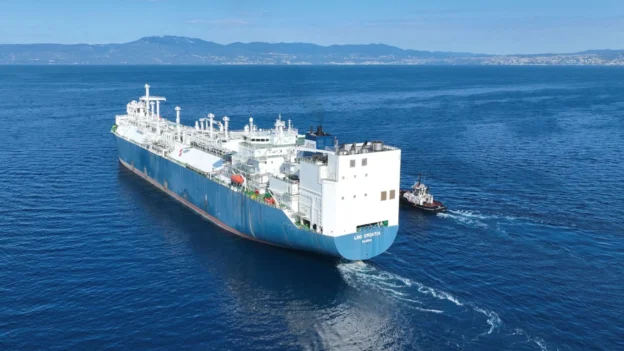After more than 1,600 days in continuous operation and with more than 10.7 billion cubic meters of natural gas delivered to the Croatian national grid, the FSRU LNG Croatia has sailed for Turkey. The vessel is targeting a modernization that will allow it to expand its regasification capacity and extend its operational lifetime.
FSRU LNG Croatia vessel FSRU LNG Croatia heads to Turkey
The vessel is now at the Turkish shipyard Kuzey Star, where it will undergo operations until October. In addition to installing a new regasification regasification modulethe vessel will undergo a complete class refurbishment, which is necessary after five years of service. This work is part of a strategic effort to ensure the reliability of gas supply to Croatia, and neighboring countries in Central Europe and the Balkans.
Since its entry into operation, the floating terminal has received 126 LNG tankers and allowed the unloading and regasification of more than 17 million cubic meters of LNG. Part of this volume has been distributed through more than 500 tanker trucks, strengthening the role of the FSRU as a regional logistics hub.
The terminal is located on the island of Krk and has been central to the Croatian energy transition, diversifying supply sources and minimizing dependence on other grids. The current capacity expansion anticipates increased regional demand in the face of changing geopolitical conditions.
The technical intervention in Turkey has wider implications. By increasing regasification capacity, the vessel will be able to offer additional volume to the market, improving the stability of supply in countries such as Hungary, Slovenia and others in southeastern Europe.
The operation is supervised by LNG Croatia, the state-owned company that manages the infrastructure, in coordination with international suppliers. The Kuzey Star shipyard, with experience in similar projects, will be in charge of specialized engineering activities.
The modernization of FSRU LNG Croatia strengthens Croatia’s commitment to regional energy security. The flexibility of the floating terminal remains a strategic asset in the face of global gas market volatility.
Source and photo: LNG Hrvatska

